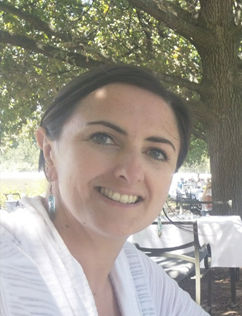 Emma Eaton, Commodity Manager for UK/IE Travel & Events, is a 2022 BTN Best Practitioner
Emma Eaton, Commodity Manager for UK/IE Travel & Events, is a 2022 BTN Best Practitioner
Here's the thing: Travel buying doesn't have to support communities, contribute to the employment and financial well-being of underserved groups or create goodwill toward the buying organization. But here's the other thing: It can.
That's not just the message but also the action that Siemens commodity manager for UK/IE travel and events wants to put in front of the managed travel industry. She has partnered with an organization called Social Enterprise U.K. to identify travel partners and meeting venues she can include in Siemens' preferred supplier set that invest most or all their profits back to their local communities or fund projects that support underserved communities.
The Good Hotel adjacent to the Excel Exhibition Center in London is a prime example. All
Good Group profits fund Niños de Guatemala, a foundation providing education to
500 children in Central America. Good Hotel London also provides a training
program for long-term unemployed people in Newham, the borough where it is
located and one of the poorest in the U.K. When Siemens travelers have occasion to be in the area, the hotel is top choice.
"There are only a few hotels and meeting venues in the U.K. that currently qualify as social enterprises," said Eaton. "But I've been promoting them to travelers and making them accessible in our agencies and online booking tools." She has worked with Siemens' internal communications to help travelers understand the benefits of these choices and what Siemens goals are for creating opportunities and being a force for good. "Across the supply chain internally
we've set some quite ambitious targets, such as positively impacting as many lives in the U.K. as [Siemens has] employees," Eaton said.
To contribute more meaningfully to that goal, Eaton has realized that options are limited for sourcing first-tier travel suppliers. But she has worked with her first-tier hotel and airline partners to identify local providers of coffees, stationery and other products that could supply her suppliers. Siemens' preferred airline partner Virgin Atlantic was already using Eaton's recommended local coffee supplier, but other suppliers like Lufthansa and British Airways have made some supplier changes with Eaton's encouragement. She's in conversation with others and has made the question du rigueur in her RFPs, though a commitment isn't required to be in the Siemens program.
To that point, however, Siemens supports a corporate-level framework for Eaton's work with its goals to impact as many lives at it has employees. The company views these efforts as part of its Environmental, Social and Governance initiatives. Eaton's next step for the program is to work out how to measure that impact, not just with first-tier suppliers but with the longer second-tier tail. "We don't want that second-tier impact to be invisible," she said. "So we are working out how to track it when we go deeper into the supply chain."
Eaton has also made social buying a personal passion, speaking at industry events and recruiting other buyers to get involved. She didn't, however, attend the BTN reception to honor her work among her peers, as her work also touches environmental initiatives. Rather, she saved the carbon emissions the 11-hour flight would have produced. "Other attendees had pressing business and multiple meetings to attend," she said, adding that when there's a business reason, attendance at industry events is an reasonable choice. "I didn't have those business reasons," she said, "so I hope in not coming, I was able to set a good example about the choices we all have to make when it comes to business travel now."